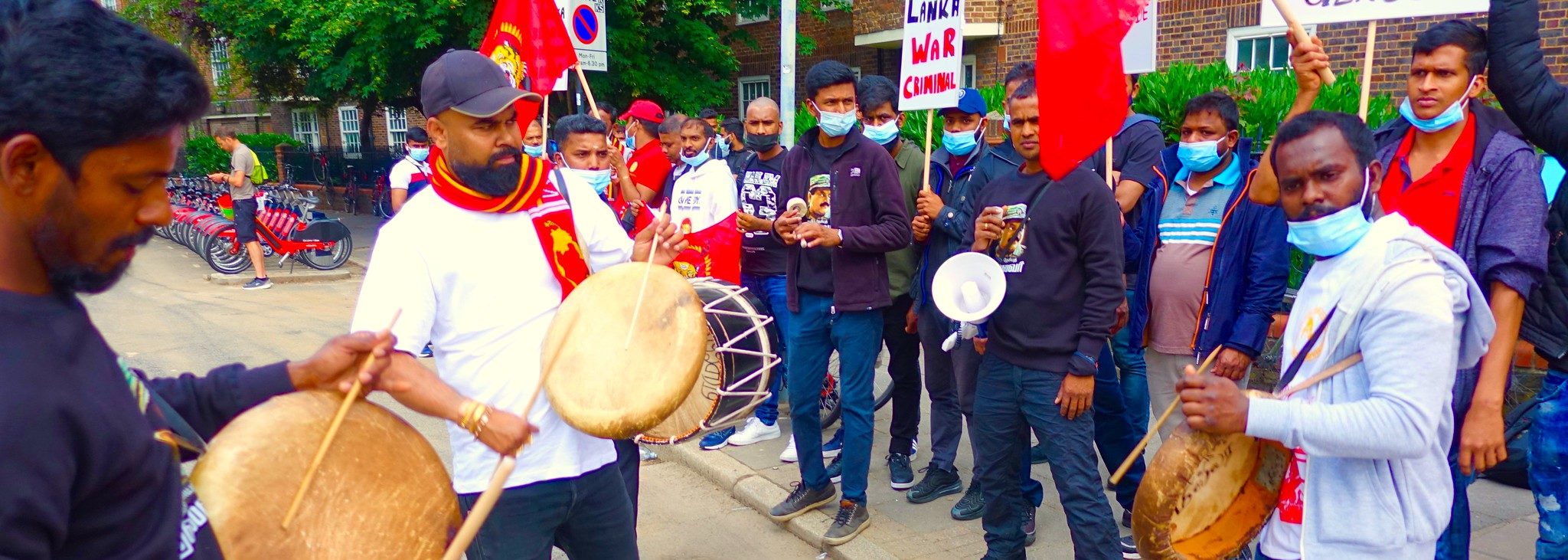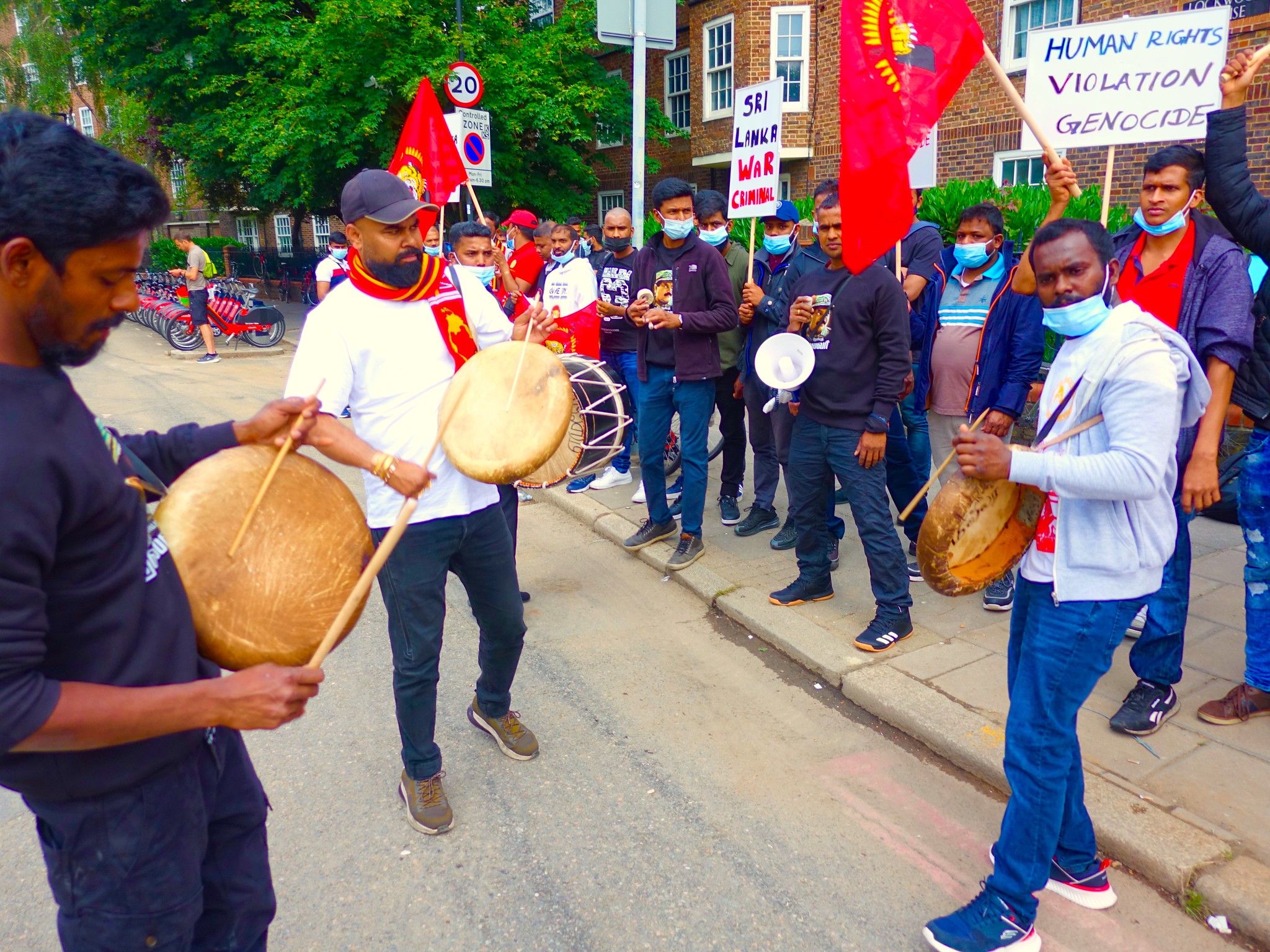Published: 07/12/2022
First published in May, 2022
Sri Lanka’s current healthcare system collapse underscores disparities faced by ethnic minorities dating back to the country’s civil war—and the need to center health equity in the global response.
By Wasan Kumar, Stanford medical student, Organization for Global Health co-chair, and a student of global health and conflict and Global Asian Studies.
Over the past several weeks, a national economic collapse and resulting political crisis in Sri Lanka has precipitated a health systems disaster as the nation faces shortages of essential medical supplies and drugs. However, the effects of this crisis are felt disproportionately across the island-nation and its minority groups, the result of longstanding inequities dating back to the country’s civil war.
On March 9, protests erupted on this island nation of roughly 22 million people as shortages of fuel, daily blackouts, and increasing food insecurity reached untenable levels following economic mismanagement and the dissolution of the coalition government. The country’s largest medical union, the Government Medical Officers Association, declared the situation a national health emergency due to the lack of medicine, and healthcare workers joined the protests.
In response to this crisis, Sri Lankan refugees have begun to migrate to India. Since the end of March, about 40 Sri Lankan Tamils have fled Sri Lanka to Tamil Nadu. They cite the exorbitant costs of essentials like food and gas cylinders for stoves, and the lack of jobs as primary drivers of their exodus. Importantly, all refugees thus far have been Tamil, which can imply Sri Lankan Tamils perceive fewer options or face greater social vulnerability leading them to take this dangerous journey across the Palk Strait. There are an estimated 3 million ethnic Tamils living in Sri Lanka. Tensions between the Sinhalese majority and Tamil minority have existed for decades, reaching a peak in the Sri Lankan Civil War, which ended just over a decade ago.
“This is a critical moment for the global health community to act in order to enshrine health equity for the future of internally displaced people and ethnic Tamilians in Sri Lanka.”
Wasan Kumar
Tamils living in Sri Lanka have good reason to question the government response. The current Sri Lankan President, Gotabya Rajapaksa, has been accused of committing war crimes against Sri Lankan Tamils including sanctioning torture, rape, and murder. During the civil war he led the Sri Lankan Military Intelligence Corps, which has been attributed to the disappearance of 10,000 Tamil civilians, all of whom were recently declared dead. The UN estimates upwards of 40,000 Tamil civilians were killed in this conflict.
A review on post-conflict health in Sri Lanka found that the northern region, where the majority of Sri Lankan Tamils live, had the highest rates of neonatal and maternal mortality in Sri Lanka. There was also a 20-fold increase in tuberculosis prevalence in this region compared to the national average. Another study of Tamil schoolchildren in Northern Sri Lanka found that 41.8% of boys and 19.1% of girls were thin or severely thin, and scored poorly on tests of cardiorespiratory fitness. Studies aiming to clarify adverse psychosocial effects of the conflict found significant increases in grief, suicidality, PTSD, domestic violence, and substance use disorders among communities in Northern Sri Lanka. In the past decade, the Ministry of Health has made progress to improve health equity through community-based mental health initiatives and immunization campaigns focused on internally displaced people (IDP). Despite this, there has yet to be an effort by the Ministry of Health to quantify healthcare access in IDP and minority populations, especially in Northern Sri Lanka.
Sri Lanka has called upon the global community for humanitarian support in their current economic crisis. Thus far, the government has received $1.5 billion in aid from India, and is currently working with the International Monetary Fund on a $4 billion loan restructuring program. Given the existing disparities, there is a need for scrutiny on the distribution of funds and allocation of purchased resources including food, fuel, and medical supplies, specifically to health centers in the Northern region.
“The ongoing healthcare system collapse in Sri Lanka uncovers some of the disparities faced by ethnic minorities in the country—and the long-lasting consequences of conflict on a population’s health.”
Wasan Kumar
This is an opportunity for health equity to be central in the restructuring of Sri Lanka’s healthcare system, and the global community should ensure medical aid funds are dedicated to this cause. The health benefits packages (HBPs) program in Malawi, where healthcare services and spending are linked to specific target populations, has helped improve population health. These can provide a paradigm for aid payments focused on improving health equity and bringing resources to the Sri Lankans who need them the most.
The WHO also provides a framework for a human-rights-based health equity approach that emphasizes addressing structural barriers to healthcare access and policies that advance human rights. Further, to truly impact mental health equity, there needs to be a greater effort to integrate mental health care with primary care, and public health initiatives to improve mental health literacy and destigmatize mental health support. One approach can be partnering with traditional healers to diagnose and refer individuals for mental health supports, and training educators to provide school-based mental healthcare.
The ongoing healthcare system collapse in Sri Lanka uncovers some of the disparities faced by ethnic minorities in the country—and the long-lasting consequences of conflict on a population’s health. This is a critical moment for the global health community to act in order to enshrine health equity for the future of internally displaced people and ethnic Tamilians in Sri Lanka.


